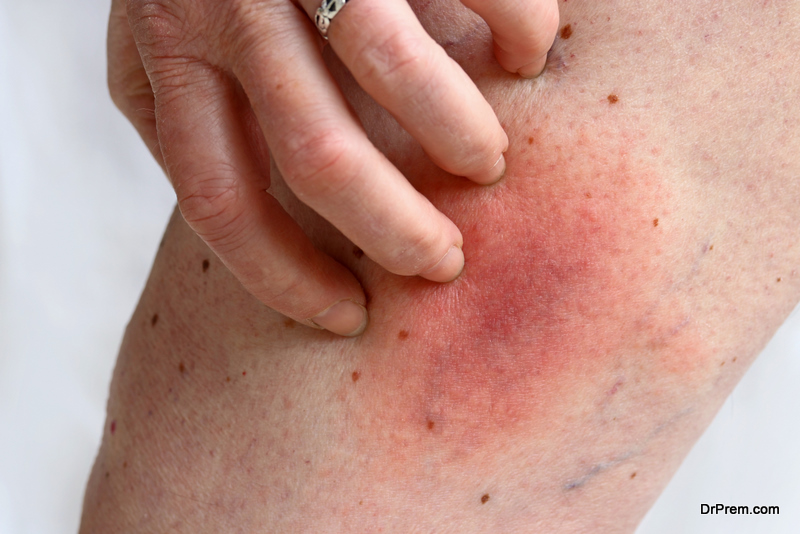Dengue Fever: Diagnosis
Top Diagnosis
1. Neutralization test (NT)
Neutralization test is a highly sensitive and specific test for dengue virus diagnosis. Due to its high specificity, the test is particularly useful in identifying the infective serotype in primary dengue infections. However, in case of secondary and tertiary infections, determination of the infecting serotype by this test may not be reliable. Additionally, neutralization test takes a fairly long time to produce results, involves associated technical difficulties and is quite expensive.
2. Complement fixation (CF) test
Complement fixation test is based on the principle that during antigen-antibody reaction, complement gets consumed. Antibodies detected for this test usually appear later than the HI antibodies and persist for shorter time periods. CF test is very specific in case of primary infections and contribute to the determination of the infecting serotype. One of the disadvantages of this test is that it is fairly difficult to execute and requires highly skilled and trained personnel to produce accurate results.
3. Tourniquet test
The Tourniquet test is defined by WHO as one of the necessary tests for detection of dengue viral infection. The test assesses the fragility of capillary walls and helps detect thrombocytopenia. Tourniquet test is particularly helpful in settings which lack proper laboratory facilities. The test involves application of a blood pressure cuff and inflating it to a point between the systolic and diastolic blood pressures for 5 minutes. This is followed by the counting of petechial hemorrhages. A 10 or more petechiae per square inch indicates a positive test result.
4. Blood tests
Blood tests are done in the laboratory to confirm the diagnosis of dengue fever. These tests help in detecting parasites, antigens, antibodies or nucleic acids in the blood. Dengue fever, in its severe form requires frequent blood tests to monitor the platelet count during a bout of the fever. Blood tests are generally started from the fifth day of the onset of fever. Such tests for diagnosis of dengue fever are very common and produce quick and efficient results.
5. Reverse transcriptase Polymerase chain reaction (RT-PCR)
RT-PCR is a sophisticated test for diagnosing dengue fever by the detection of RNA. Usually done in two parts the first part of the procedure deals with the synthesis of complementary DNA from RNA by reverse transcription. The second part involves amplification of specific complementary DNA by polymerase chain reaction.
6. Dengue fever rapid tests
Rapid test kits are used for a quick detection of antibodies caused by dengue infection. Detection of IgM and IgG antibodies are mostly important for qualitative and differential diagnosis of the infection. Blood, plasma or serum is examined for detection of antibodies. These tests are basically screening tests done to confirm or rule out infection in a suspected patient and to differentiate between primary and secondary dengue viral infections. Rapid tests are eminently useful as they help in early diagnosis and initiation of treatment.
7. Dengue virus isolation
Dengue virus isolation involves separation of dengue virus and detection of dengue viral RNA in a serum or tissue sample. This is a confirmation test but it makes use of complex techniques. Dengue virus isolation is most helpful in different types of medical research.
8. MAC-ELISA (Immunoglobulin M capture enzyme linked immunosorbent assay)
The MAC-ELISA is a rapid test for confirmation of dengue fever. Samples are collected and are later analyzed either through hemagglutination inhibition (HI) or made to undergo enzyme immunoassays for confirming or ruling out the possibility of dengue infection. In case of a negative report, the test needs to be repeated after every 10 to 15 days. MAC-ELISA is particularly helpful for surveillance of dengue and DFH/DSS. The test has the advantages of fast detection of propagation of transmission of the disease, and a relatively easy execution making it a valuable tool during epidemics.
9. Serological tests
The most common test, to confirm or rule out dengue virus infection in a suspected patient, is serological tests. These tests help detect dengue viral antigen for an early diagnosis of the disease. Apart from detecting the virus, they can also ascertain the acuteness of the infection. An increase in the dengue antibodies by four times or more, between the initial and final samples, confirms the infection as acute.


